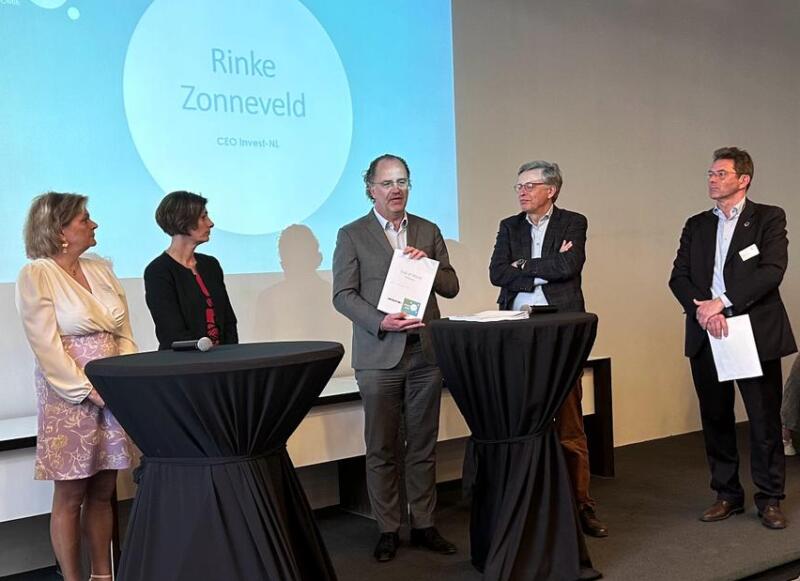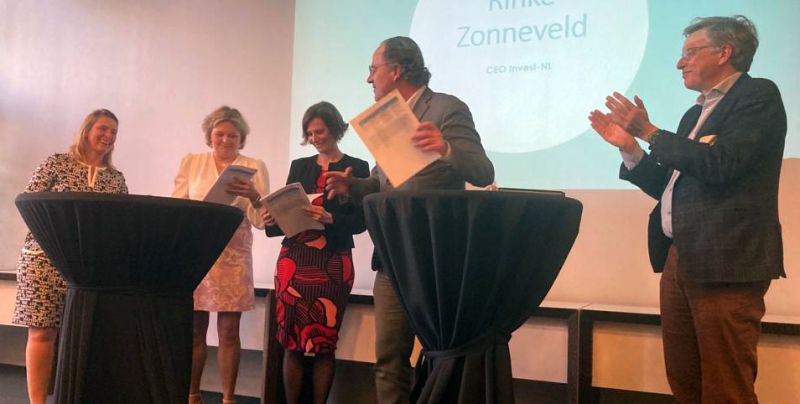No Time to Waste ‘Help business owners with regulations around end-of-waste declaration’
April 18, 2023
Give more support to entrepreneurs who want to reduce the use of fossil raw materials with new waste streams. This is one of the key recommendations from the End of Waste white paper presented during the No Time To Waste event on April 17, moderated by our HCH director Freek van Eijk. The report, commissioned by Green Chemistry, New Economy and Invest-NL, maps out how to overcome the main hurdles around recycling.

Focus on one specific product
To break down the barriers, Green Chemistry, New Economy and Invest-NL asked Ecomatters to investigate ways recycling can be given a significant boost safely.
Maximizing the recycling of materials has many advantages: it reduces the demand for virgin fossil raw materials, we need to process less waste, and we are making a big step towards a circular economy. Yet recyclers face several barriers when defining reuse options for new waste streams: they must demonstrate that the new applications have no health issues, and they must meet the requirements of the Environmental Management Act to obtain an ‘End-of-Waste Declaration’. This is especially difficult because it is not always clear when you are compliant. As a result, essential recycling options often go unused.
The findings were presented on April 17 to a room full of recyclers and policymakers. In the process, companies looking to use new waste streams were advised, among other things, to focus on developing clearly defined products when applying for the “End-of-Waste Declaration.

Help the entrepreneur through the regulatory jungle.
There are also quick wins for policymakers: Set up a central point of contact that can advise entrepreneurs, pool recycling knowledge, and make clear precisely what rules an entrepreneur must comply with to claim the “End-of-Waste Declaration. It is also important that Dutch regulations are aligned with European regulations and that clear rules are agreed upon for plastics and bio-based waste streams, for example.
The conference was moderated by Freek van Eijk (HCH Director); the findings were encapsulated in a report and were handed over during the meeting by Arnold Stokking (Green Chemistry, New Economy) and Rinke Zonneveld (Invest-NL) to Jeannette Baljeu (member of the South Holland Provincial Executive), Jacqueline Vaessen (figurehead ChemistryNL) and Hagar Ligtvoet (Ministry of Infrastructure and Water Management).
Arnold Stokking: “Partly given the climate urgency, we cannot afford any delay in the raw materials transition. Green Chemistry, New Economy hopes that with the advice from this report, a number of important barriers will be removed.”
Jeannette Baljeu: “The utilization of secondary raw materials is of great importance for a circular economy. In this regard, it is important that we uniformly apply the end-of-waste criteria. The province is therefore committed to providing good information and removing ambiguities in regulations.”

